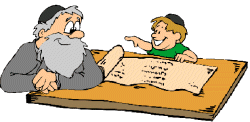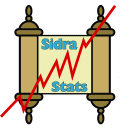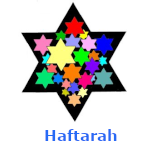VaYigash
וַיִּגַּשׁ
Gen. 44:18 – 47:27
Judah’s talk with Joseph
Judah walked up to Joseph and said, “Please, your highness, let me say something to you personally. Do not be angry with me, even though you are just like Pharaoh. You asked if we still had a father or another brother. We told you, We have a father who is very old, and the youngest brother is a child of his old age. He had a brother who died, and thus, he is the only one of his mother’s children still alive.
His father loves him. You said to us, Bring him to me, so that I may set my eyes on him. We told you, The lad cannot leave his father. If he left him, his father would die. You replied, If your youngest brother does not come with you, you shall not see my face again. We went to your servant our father and told him what you said. When our father told us to go back and get some food, we replied, We cannot go. We can go only if our youngest brother is with us. If he is not with us, we cannot even see the man in charge. Your servant our father said, You know that my wife Rachel bore me two sons. One has already left me, and I assume that he was torn to pieces by wild animals. I have seen nothing of him until now. Now you want to take this one from me too! If something were to happen to him, you will have brought my white head down to the grave in evil misery.
And now, when I come to your servant our father, the lad will not be with us. His soul is bound up with the lad’s soul! When he sees that the lad is not there, he will die! I will have brought your servant our father’s white head down to the grave in misery. Besides, I offered myself to my father as a guarantee for the lad, and I said, If I do not bring him back to you, I will have sinned to my father for all time. So now let me remain as your slave in place of the lad. Let the lad go back with his brothers! For how can I go back to my father if the lad is not with me? I cannot bear to see the evil misery that my father would suffer!”
Joseph Reveals Himself to his Brothers
Joseph could not hold in his emotions. Since all his attendants were present, he cried out, “Have everyone leave my presence!” That way no one else was with him when Joseph revealed himself to his brothers. He began to weep with such loud sobs that the Egyptians could hear it. The news of these strange happenings reached Pharaoh’s palace.
Joseph said to his brothers, “I am Joseph! Is my father still alive?” His brothers were so startled, they could not respond.
“Please, come close to me,” said Joseph to his brothers.
When they came closer, he said, “I am Joseph your brother! You sold me to Egypt. Now don’t worry or feel guilty because you sold me. Look! HaShem has sent me ahead of you to save lives! There has been a famine in the area for two years, and for another five years there will be no plowing or harvest. HaShem has sent me ahead of you to insure that you survive in the land and to keep you alive through such extraordinary means. Now it is not you who sent me here, but G-d. He has made me Pharaoh’s vizier, director of his entire government, and dictator of all Egypt. Hurry, go back to my father, and give him the message: Your son Joseph says, HaShem has made me master of all Egypt. Come to me without delay. You will be able to settle in the Goshen district and be close to me – you, your children, your grandchildren, your sheep, your cattle, and all that you own. I will fully provide for you there, since there will still be another five years of famine. I do not want you to become destitute, along with your family and all that is yours. You and my brother Benjamin can see with your own eyes that I myself am speaking to you. Tell Father all about my high position in Egypt, and about all that you saw. You must hurry and bring Father here.”
With that, Joseph fell on the shoulders of his brother Benjamin, and he wept. Benjamin also cried on Joseph’s shoulders. Joseph then kissed all his brothers and wept on their shoulders. After that, his brothers conversed with him. News spread to Pharaoh’s palace that Joseph’s brothers had shown up. Pharaoh and his advisers were pleased.
Pharaoh told Joseph to instruct his brothers, “This is what you must do: Load your beasts and go directly to Canaan. Bring your father and your families and come to me. I will give you the best land in Egypt. You will eat the fat of the land. Now you are instructed to do the following: Take waggons from Egypt for your small children and wives, and also use them for your father. Come and do not be concerned with your belongings, for the best of Egypt will be yours.”
Israel’s sons agreed to do this. Joseph gave them wagons according to Pharaoh’s instructions, and he also provided them with food for the journey. He gave each of his brothers an outfit of clothes. To Benjamin, however, he gave 300 pieces of silver and five outfits. Joseph sent the following to his father: Ten male donkeys, loaded with Egypt’s finest products, as well as ten female donkeys, loaded with grain, bread, and food for his father’s journey.
He sent his brothers on their way. As they were leaving, he said to them, “Have a pleasant journey!”
The brothers headed north from Egypt, and they came to their father Jacob in Canaan. They broke the news to him: “Joseph is still alive. He is the ruler of all Egypt.”
Jacob’s heart became numb, for he could not believe them. “It’s too much!” said Israel. “My son Joseph is alive! I must go and see him before I die!”
Israel began the journey, taking all his possessions, and he arrived in Beer-sheba. He offered sacrifices to the HaShem of his father Isaac.
HaShem spoke to Israel in a dream, and said, “Jacob! Jacob!”
“Yes,” replied Jacob.
HaShem said, “I am the Omnipotent G-d of your father. Do not be afraid to go to Egypt, for it is there that I will make you into a great nation. I will go to Egypt with you, and I will also bring you back again. Joseph will place his hands on your eyes.”
Jacob set out from Beer-sheba. Israel’s sons transported their father, along with their children and wives, on the wagons that Pharaoh had sent to carry them. They took their livestock and all the possessions that they had acquired in Canaan. Jacob came to Egypt with all his descendants. His sons and grandsons were with him. He also brought his daughters, his grand-daughters, and all his offspring to Egypt with him.
Jacob’s Family
These are the names of the Israelites who came to Egypt:
Jacob and his sons.
Reuben was Jacob’s first-born. Reuben’s sons were Enoch (Chanokh), Palu, Chetzron and Carmi.
Simeon’s sons: Yemuel, Yamin, Ohad, Yakhin, Tzochar, as well as Saul (Shaul) son of the Canaanite woman.
Levi’s sons: Gershon, Kehath and Merari.
Judah’s sons: Er, Onan, Shelah, Peretz and Zerach. Er and Onan died in Canaan. The sons of Peretz were Chetzron and Chamul.
Issachar’s sons: Tolah, Puvah, Yov and Shimron.
Zebulun’s sons: Sered, Elon and Yachle’el.
All were from the sons that Leah bore to Jacob in Padan Aram. Besides this, there was also Jacob’s daughter Dinah. The tally so far, including his sons and daughters, is 33.
Gad’s sons: Tzifion, Chagi, Shuni, Etzbon, Eri, Arodi, and Areli.
Asher’s sons: Yimnah, Yishvah, Yishvi and Beriah. There was also their sister Serach. The sons of Beriah were Chever and Malkiel.
These are from the sons of Zilpah. Laban gave her to his daughter Leah, and she bore these sons to Jacob. Here there are 16 in all.
The sons of Jacob’s wife Rachel were Joseph and Benjamin. In Egypt, Joseph had sons born to him by Asenath, daughter of Poti Phera, priest of On: Manasseh and Ephraim.
Benjamin’s sons: Bela, Bekher, Ashbel, Gera, Naaman, Echi, Rosh, Muppim, Chuppim and Ard.
Those are the sons that Rachel bore to Jacob. There are 14 in all.
Dan’s son: Chushim.
Naphtali’s sons: Yachtze’el, Guni, Yetzer and Shilem.
Those are from the sons of Bilhah. Laban gave her to his daughter Rachel, and she bore these sons to Jacob. Here there are 7 in all.
Thus, the number of people who came to Egypt with Jacob, who were his blood descendants, was 66, not counting the wives of Jacob’s sons. Joseph’s sons, born to him in Egypt, added another two individuals. Adding it all up, the number of individuals in Jacob’s family who came to Egypt was 70.
Jacob Arrives in Egypt
Jacob sent Judah ahead of him to make preparations in Goshen. They then arrived in the Goshen district. Joseph personally harnessed his chariot, and he went to greet his father Israel in Goshen. He presented himself to his father, and threw himself on his shoulders, weeping on his shoulders for a long time.
“Now I can die,” said Israel to Joseph. “I have seen your face, and you are still alive.”
To his brothers and his father’s family, Joseph said, “I will go and tell Pharaoh. I will say the following to him: My brothers and my father’s family have come to me from Canaan. These men deal in livestock and are tenders of sheep. They have brought along their sheep, their cattle, and all their possessions. When Pharaoh summons you and inquires as to your occupation, you must say, We and our fathers have dealt in livestock all our lives. You will then be able to settle in the Goshen district, since all shepherds are not allowed in Egypt.”
Joseph went and told Pharaoh. He said, “My father and brothers have come from Canaan, along with their sheep, their cattle, and all their belongings. They are now in the Goshen district.”
From among his brothers, he selected five men and presented them to Pharaoh.
Pharaoh asked Joseph’s brothers, “What is your occupation?”
“We are shepherds,” they replied to Pharaoh, “we and our fathers before us. We have come to stay awhile in your land, because there is no grazing for our flocks, so severe is the famine in Canaan. If you allow us, we will settle in the Goshen district.”
Pharaoh said to Joseph, “Your father and brothers have now come to you. The land of Egypt is at your disposal. Settle your father and brothers in the best area. Let them settle in the Goshen District. If you have capable men among them, you can appoint them as livestock officers over my cattle.”
Joseph brought his father Jacob and presented him to Pharaoh. Jacob blessed Pharaoh. “How old are you?” asked Pharaoh of Jacob.
“My journey through life has lasted 130 years,” replied Jacob. “The days of my life have been few and hard. I did not live as long as my fathers did during their pilgrimage through life.”
With that, Jacob blessed Pharaoh and left his presence. Joseph found a place for his father and brothers to live. He gave them an estate in the Rameses region, in the best area, as Pharaoh had ordered.
Joseph provided all the needs of his father, his brothers, and all his father’s family, down to the very youngest. There was no bread in the entire area, since the famine was very severe. The people of Egypt and Canaan became weak with hunger. Joseph collected all the money in Egypt and Canaan in payment for the food the people were buying. Joseph brought all the money to Pharaoh’s treasury.
When the money in Egypt and Canaan was used up, Egyptians from all over came to Joseph. “Give us bread!” they cried. “Why should we die before you just because there is no money?”
“Bring your livestock,” replied Joseph. “If there is no more money, I will give you what you need in exchange for your animals.”
They brought their livestock to Joseph, and Joseph gave them bread in exchange for horses, flocks of sheep, herds of cattle, and donkeys. He saw them through that year with bread in exchange for all their livestock.
The year came to an end. They came to him the next year, and said, “We are not holding anything back from you, your highness. But since the money and animal stocks are used up, there is nothing left for you besides our dried-up bodies and our land. Why should we die before your very eyes – us and our land? Buy our bodies and our land in exchange for bread. Let us become Pharaoh’s serfs, and let our land also be his. Give us seed grain! Let us live and not die! Let the land not become desolate.”
Joseph bought up all the farm land in Egypt for Pharaoh. Every man in Egypt had sold his field, for the famine was too much for them, and the land became Pharaoh’s property.
Joseph moved the people to the cities in all Egypt’s borders, from one end to the other. The only land he did not buy up was that of the priests, since the priests had a food allotment from Pharaoh. They ate the food allotment that Pharaoh gave them, and did not have to sell their lands.
Joseph announced to the people, “Today I have purchased your bodies and your lands for Pharaoh. Here is seed grain for you. Plant your fields. When it produces grain, you will have to give a fifth to Pharaoh. The other four parts will be yours, as seed grain for your fields, and as food for you, your wives and your children.”
“You have saved our lives,” they responded. “Just let us find favor in your eyes, and we will be Pharaoh’s serfs.” Joseph set down a decree that one-fifth of whatever grows on the farm land of Egypt belonged to Pharaoh. Only the priestly lands did not belong to Pharaoh. Meanwhile, the nation of Israel lived in Egypt, in the Goshen district. They acquired property there, and were fertile, with their population increasing very rapidly.
Haftarah Connection

Ezekiel 37.15-28
This week’s Parsha begins Judah talking with Joseph and offering to become his slave. This completes the circle where he stepped forward and told his brothers to enslave Joseph.
In the Haftara, Ezekiel is told to take two pieces of wood and write on one “Judah” and the other “Efraim”. HaShem joins the two pieces of wood into one piece of wood. Telling Ezekiel that he would reunite the the Jewish people and end the exile.
Ezekiel believed that the Jews went to Egypt because Judah and Joseph were not united. HaShem was going to unite them in the land of Israel.
Sidra Stats

- Eleventh of 54 Sedras in the Torah
- Written on 178 lines in the Sefer Torah
- 106 P’sukim (verses)
- 1,480 words
- 5,680 letters
Next week’s Parashat: VaYechi


